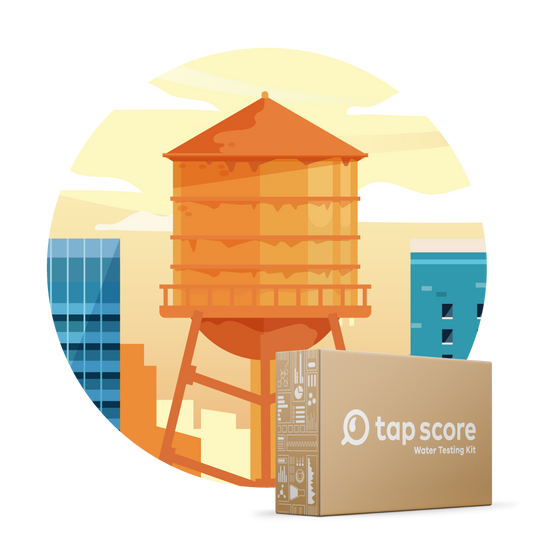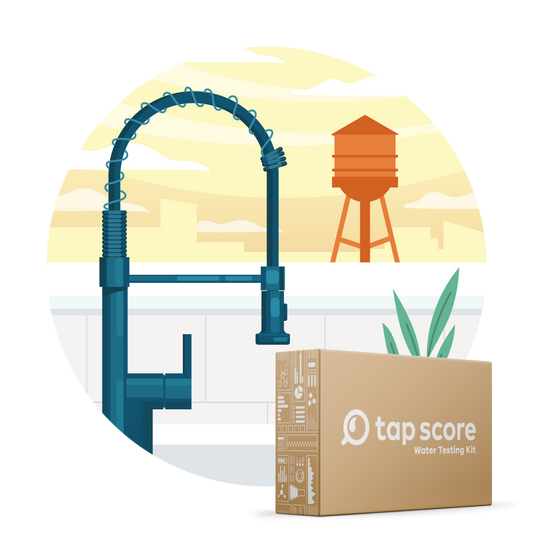
Water Testing Labs Near Me: State by State Guide
Our blog is written by real experts— not AI. Each guide is carefully reviewed and updated based on the latest research. Plus, with no affiliate links, you can count on unbiased insights you can trust.
We’ve organized a state-by-state guide to where to find certified local laboratories for drinking water testing.
Table of Contents:
What to Know Before You Contact the Lab
Before contacting a certified laboratory, there are a few things to consider when selecting a lab for drinking water testing. We’ve listed the various concepts and procedures it’s useful to be familiar with.
Informational vs. Compliance Testing
Compliance testing is a requirement of the Safe Drinking Water Act (SWDA) and applies primarily to public water systems or other agencies that must report their water quality data to comply with U.S. Environmental Protection Agency (EPA) limits. These cases include legal proceedings, regulatory limits, and in some instances, real estate transactions.
Informational testing is for pretty much everyone else. While that means that labs performing informational testing aren’t required to meet EPA approved standardized methods to analyze your samples, it’s still a good idea to use laboratories that are accredited and/or certified to test for your analytes of interest.
Accreditation vs. Certification
When it comes to drinking water laboratories, an accredited lab and a certified lab are the same thing. It's just two different ways of saying that an accrediting/certifying agency (like NELAP, the National Environmental Laboratory Accreditation Program) has ensured that the lab meets the requirements to perform the testing they offer.
Additionally, accredited laboratories can also be referred to as state-certified.
Sampling Requirements, Drop-off Procedure, and Turnaround Time
Labs will usually be very straightforward about their requirements and it’s your responsibility to pick the lab that best aligns with your needs. However, those requirements are not always easy to understand. Also, some labs may require a minimum number of analytes to test for, which can become expensive quickly.
Sampling requirements refers to how the lab would like you to collect your water sample. The lab will inform you when to expect results. How you receive your results depends on the lab (e.g., mailed, emailed, for pickup). Note: Reports offered directly from the lab are specialized and not easy to read or interpret.
Analyte List
This is a list of analytes — or substances being identified and measured — the laboratory’s facilities can test for. Some lists are as simple as a list of items, some offer more detail about each analyte and the testing process or sampling method.
Before initiating contact with a local water testing laboratory, you’ll want to know exactly what analytes you’d like to test for. Different analytes depend on whether you are a public utility customer or a private well owner, as well as any issues specific to your location.
- Heavy metals (like lead, arsenic, chromium) are always important to test for — no matter the water source
- Well owners will want to test for coliform bacteria and nitrates
- Utility customers will want to test for volatile organic compounds (VOCs)
Laboratory Water Analysis Made Easy
Between analyte lists, certifications, and the less-than experienced customer service departments, selecting a laboratory on a contaminant-by-contaminant basis can be more cumbersome than it needs to be.
Tap Score offers ready-made drinking water testing kits that offer testing for a suite of contaminants and water quality parameters. That means everything we've covered above is handled for you by our team of water professionals. There’s no need to contact individual labs or coordinate a handful of processes. It’s as simple as ordering a kit to tap into our certified laboratory testing network.
Water Testing Labs by Region
The Northeast
Connecticut
Maine
Massachusetts
New Hampshire
New Jersey
-
New Jersey Department of Environmental Protection (New Jersey DEP)
-
-
If you are in need of a test that is compliant with the Private Well Testing Act of New Jersey, the state of New Jersey has very specific requirements for home sales and water testing. It is required that lab personnel collect the sample themselves and transport it to the laboratory. Unfortunately, Tap Score cannot assist with this. We recommend contacting EMSL Analytical, Inc. They can perform this kind of testing to meet NJ compliance and should be able to help out.
-
-
New York
Pennsylvania
Rhode Island
Vermont
The Southeast
Alabama
Arkansas
Delaware
Florida
Georgia
Kentucky
Louisiana
Maryland
Mississippi
North Carolina
South Carolina
Tennessee
Virginia
West Virginia

The Midwest
Illinois
Indiana
Iowa
Kansas
Michigan
Minnesota
Missouri
Nebraska
North Dakota
- North Dakota Department of Health and Human Services (North Dakota HHS)
- North Dakota State University (NSDU) (list of certified labs)
Ohio
South Dakota
Wisconsin
The Southwest
Arizona
New Mexico
Oklahoma
Texas
The West
Alaska
California
Colorado
Hawaii
Idaho
Montana
Nevada
Oregon
Utah
Washington
Wyoming
Where Can I Get My Water Tested for Free?
If you want your water tested for free by a laboratory near you, you should reach out to your local public water utility or health department. Sometimes, free laboratory water testing is available — for a select range of contaminants — when there are water quality concerns in your region.
For the most part, however, laboratory testing is not free. The equipment and expertise laboratories provide costs a lot of money to maintain. That's why laboratory drinking water test kits cost more than DIY water test strips or color changing kits, which cannot offer the same level of precision or test even a quarter of the contaminants a lab can.
The Best Home Water Testing Kits of 2025
What's Next?
Remember, we've designed a range of award-winning kits specifically designed for your water. We handle everything, from ensuring the lab is certified to making sampling and shipping a breeze. We hope you found this state-by-state list helpful for your research needs.
Visit Tap Score's collection page to pick your kit and get started.







